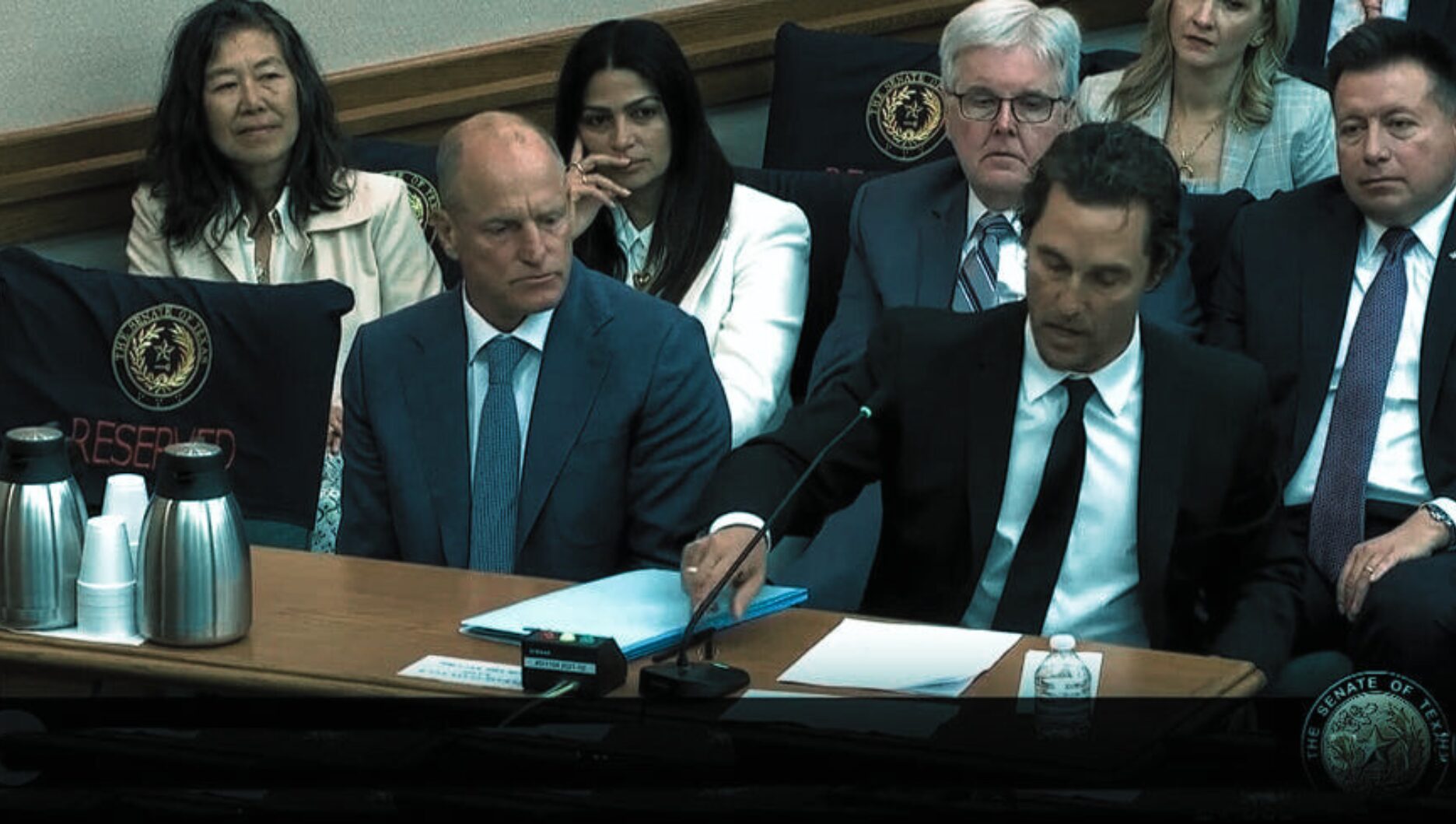
Taxpayer Dollars for the Austin Swamp, Part Two
Texas lawmakers have decided that the best way to promote jobs and culture is by handing Hollywood a $1.5 billion check.
On May 29, the Texas Legislature passed Senate Bill 22, which allocates $300 million every two years through 2035 to the Texas Moving Image Industry Incentive Program. That amounts to more than $1.5 billion in taxpayer-funded subsidies over the next decade—all in the name of making Texas a friendlier place for film and television production. The measure passed with broad bipartisan support, 24–6 in the Senate and 120–20 in the House.
Backers of the bill say the money is more than justified. Lt. Gov. Dan Patrick, one of the bill’s strongest supporters, framed it as both an economic engine and a cultural strategy. “The production incentive is an opportunity for us to export Texas faith and family values to the rest of America and the world while growing our economy and enriching Texas workers,” Patrick said in April.
But not everyone on the right is cheering. A number of conservative critics see the bill as little more than government-funded favoritism. “Texas taxpayers should not be forced to subsidize Hollywood,” wrote Carine Martinez of the Texas Public Policy Foundation, who has long opposed such programs. In the 2019 report, she and her co-author Jess Gehlhausen argued that film subsidies consistently fail to deliver long-term benefits and often result in nothing more than short-term booms.
Freshman Rep. David Lowe was blunt in his criticism. “This bill provides taxpayer-funded incentives to the film and entertainment industry—the same industry that trashed us for supporting President Trump, mocked us for standing up for the unborn, and ridiculed our Christian faith at every opportunity,” he posted on social media. Jeramy Kitchen, president of Texas Policy Research, struck a similar note: “Don’t Hollywood my Texas,” he warned.
Rep. Brian Harrison, another opponent of the bill, said the state was prioritizing “woke Hollywood elites over everyday Texans.” Like others, he took issue with subsidizing an industry widely viewed as hostile to conservative values—even with SB 22’s guardrails that prohibit subsidies for sexually explicit content or negative portrayals of Texas.
Abraham Kuyper, a theologian who was the prime minister of the Netherlands in the early 1900s, reminds us that industry and government are separate entities that should operate on their own without significant interference from the other:
“We understand hereby, that the family, the business, science, art and so forth are all social spheres, which do not owe their existence to the state, and which do not derive the law of their life from the superiority of the state, but obey a high authority within their own bosom; an authority which rules, by the grace of God, just as the sovereignty of the State does.”
Yet corporate welfare, including the subsidies for Hollywood, has become a significant part of Texas “economic development policy” in recent years. It has been funded largely by excessive taxes on Texans, as witnessed by the large budget surpluses Texas is currently experiencing. The Bible warns us of the consequences of the government wrongfully taking money from some and handing it out to others:
Like the partridge that gathers a brood that she did not hatch, so is he who gets riches but not by justice; in the midst of his days they will leave him, and at his end he will be a fool. – Jeremiah 17:11
As we discussed in Part One of this series that looked at the expansion of student loan repayment by the Texas Legislature, the precursor of theft is covetousness, i.e., seeking to obtain something to which one has no right.
Regarding SB 22, we might think that the legislators covet our money. And I suspect that would be accurate in some cases; it is at least theft since they have no right to take our money and give it to filmmakers. The picture below of a reception earlier this year in the Texas Capitol with Lt. Gov. Dan Patrick and legislators with several Hollywood celebrities suggests the theft might also be driven by the covetousness of some Texas politicians for celebrity and the votes for reelection our money and their celebrity might bring.
Defenders of the film incentive program argue that the incentives are justified because they are paid only after projects spend money in Texas and meet strict eligibility criteria. But this not only does not answer criticism from a biblical perspective, Economist Vance Ginn points out it also does not answer criticism from an economic perspective. “It is not the role of government to pick winners and losers in the market,” he said. “This is cronyism dressed up as economic development.”
Additionally, the sheer size of the expansion has raised concerns among conservatives. Just two years ago, the film incentive fund received only a fraction of what SB 22 now guarantees.
Governor Abbott has yet to announce whether he will sign the bill, though his past support for economic development programs suggests he may be inclined to do so. If approved, the new program will begin dispensing subsidies starting September 1, 2025. The funding will not expire until 2035.
Tomorrow, we’ll examine how Texas politicians have removed accountability for future increases in their legislative pensions.
Texans for Fiscal Responsibility relies on the support of private donors across the Lone Star State in order to promote fiscal responsibility and pro-taxpayer government in Texas. Please consider supporting our efforts! Thank you!
Get The Fiscal Note, our free weekly roll-up on all the current events that could impact your wallet. Subscribe today!




